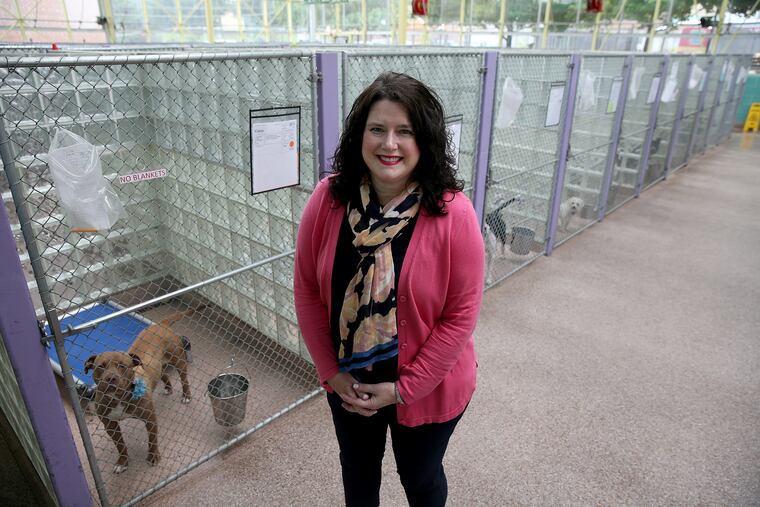PSPCA, Main Line Animal Rescue to announce alliance | Stu Bykofsky
A little more than a year after Bill Smith, the celebrated founder of Chester Springs' highly regarded Main Line Animal Rescue — and friend of dog lover Oprah Winfrey — was thrown overboard by its board of directors, the group is about to affiliate with the Philadelphia-based Pennsylvania SPCA. An announcement is expected Thursday.

A little more than a year after Bill Smith, the celebrated founder of Chester Springs' highly regarded Main Line Animal Rescue — and friend of dog lover Oprah Winfrey — was thrown overboard by its board of directors, the group is about to affiliate with the Philadelphia-based Pennsylvania SPCA. An announcement is expected Thursday.
Although such a relationship with another group is a first for the PSPCA, its CEO, Julie Klim, and Main Line interim executive director Susan Chew don't anticipate major changes for either organization. The names won't change, nor will funding. The affiliation will simply enable both groups to save more animals and reduce duplication of efforts, they say. And saving animals is their mission.
Chew came aboard in January. That was a few months after Smith's ouster, which shocked many in the animal advocacy community.
Chew said Smith's departure had no adverse impact on the refuge, which typically houses 115 dogs on its 58-acre facility. "Being part of a bigger organization," she said, would benefit Main Line.
After leaving Main Line last year, Smith founded 1 Love 4 Animals, a nonprofit based in East Pikeland Township, Chester County, dedicated to rescuing at-risk animals and fighting puppy mills. His campaign against puppy mills had obtained Oprah's support — and TV time — in 2008.
In the past year, Smith has been on The View three times, he told me, continuing his campaign against puppy mills — many of which, to our shame, are located in Pennsylvania.
PSPCA also fights puppy mills and is active in enforcing humane law from its headquarters at 350 E. Erie Ave., where it has 2.8 acres, kennels for 179 dogs, and 175 cat cages, plus two small barns for non-domesticated cats and another small barn that houses chickens.
"At our core we are two organizations that go to the Nth degree for animals," said Klim. "Our shelter hospitals are unique, we both have that focus. Our lane is animal cruelty."
Melissa Levy, executive director of PAWS, the large, Philly-based animal-rescue nonprofit, said the partnership would be "very positive, creating life-saving options for animals and more services for people who want to adopt or rescue animals."
Main Line's spacious facilities would benefit larger dogs, especially those being held by PSPCA in connection with criminal cases. Both Main Line and PSPCA draw animals from ACCT Philly, the city's animal shelter.
In a separate development, ACCT Philly had some good news in June. For the third time in eight months, the city animal shelter reached a 90 percent lifesaving rate for dogs, matching rates set in October and November 2017 that were achieved for the first time.
"A 90 percent live release rate for dogs in the summer months is a historic milestone for ACCT Philly," said Jon Gray, senior manager of lifesaving. Traditionally more dogs are surrendered during the summer months than at any other time.
That level of lifesaving is the threshold of "no-kill" status, which means that all healthy, adoptable dogs exit the shelter alive.
That goal had been a long time coming. It was more than a decade ago that ACCT Philly was created to replace PACCA — the unspeakable Philadelphia Animal Care and Control Association, a.k.a. the House of Horrors, the monster that my reporting helped to blow up.
The seed was planted even earlier, when the Alliance for Philadelphia's Animals was launched at the Academy of Natural Sciences in September 2004 on a night when it rained cats and dogs. Its goal was to create a "no-kill" city.
Fourteen years later, in the dog days of summer, the city shelter is approaching that goal.
The mission is not yet achieved, but "no-kill" looks like it is within our grasp.